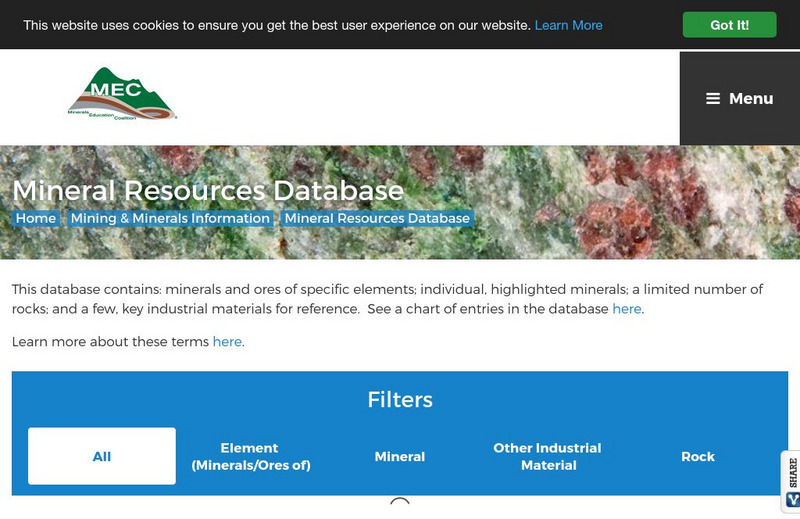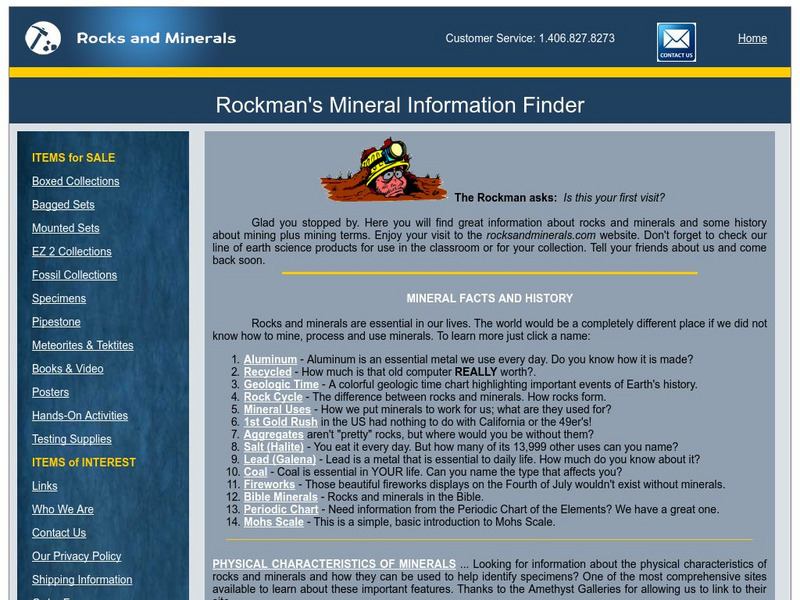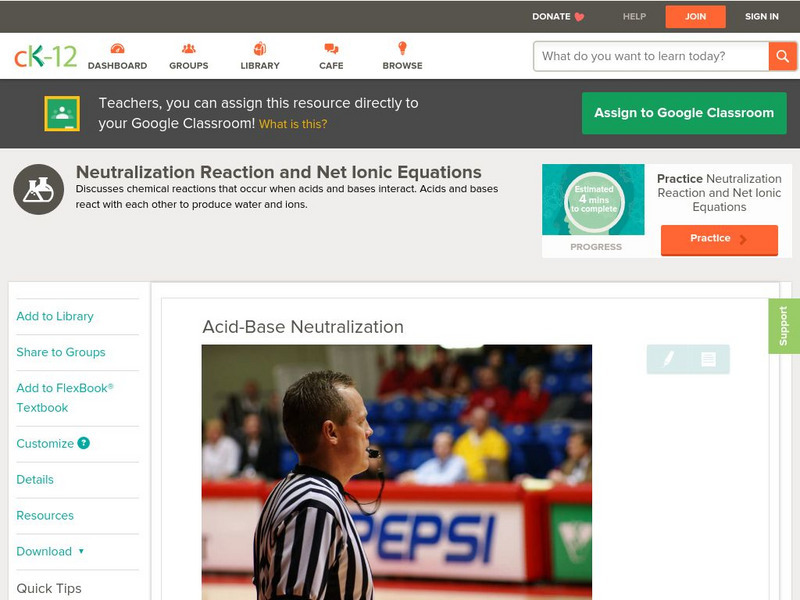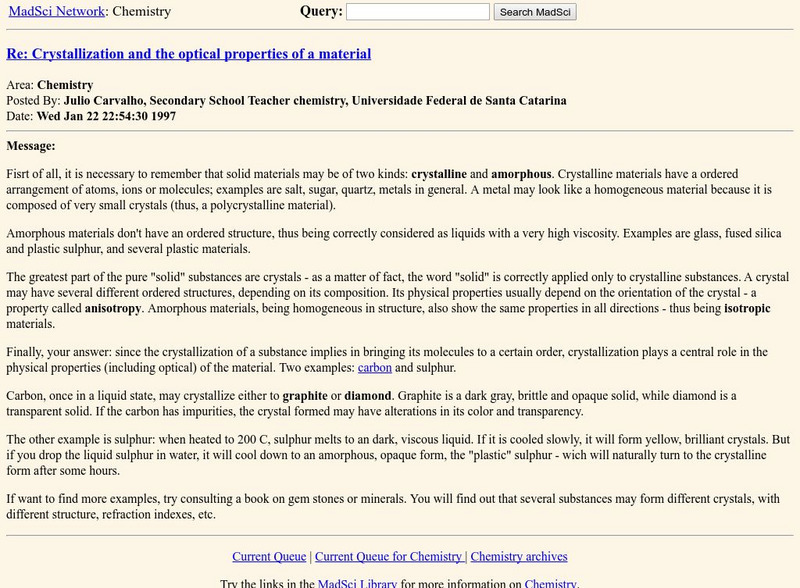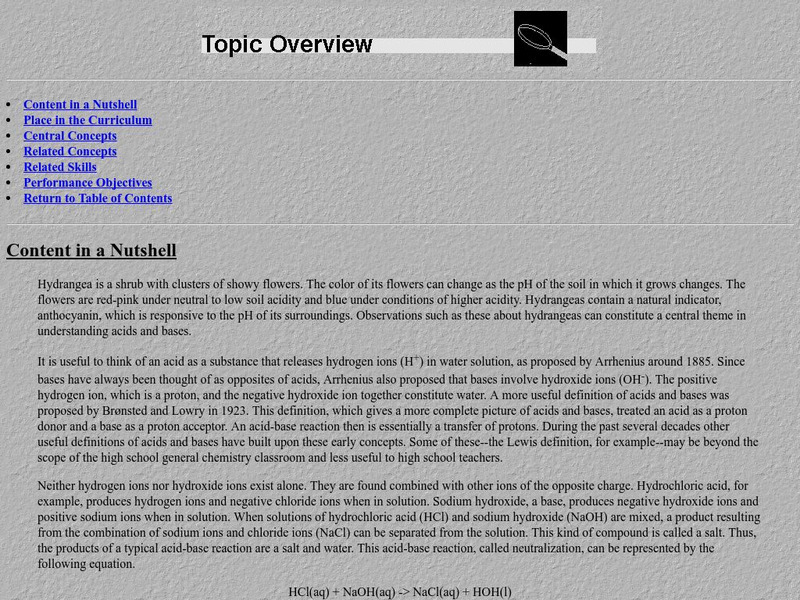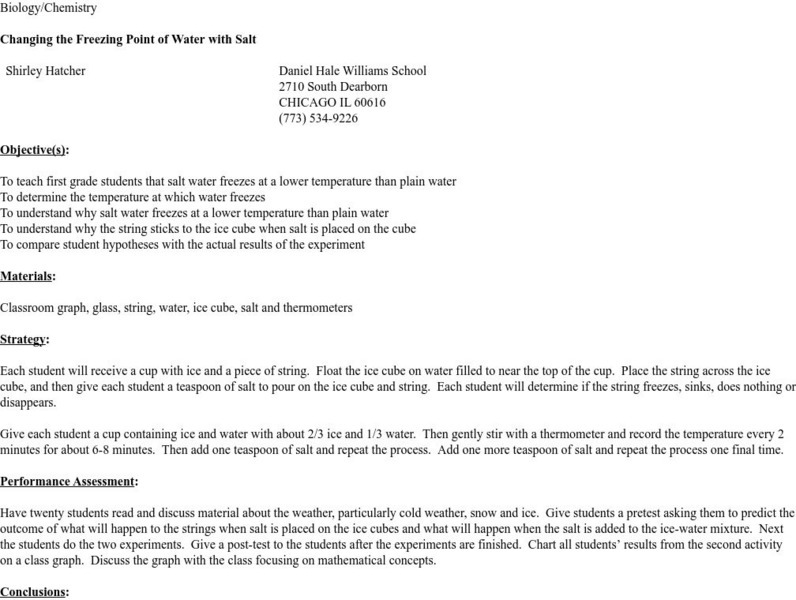University of California
Foss Web: Pebbles, Sand, and Silt Activities [Pdf]
Discover how pebbles, sand, and silt are used around us everyday in this set of activities for students.
Other
Minerals Education Coalition: Minerals Database
This resource provides photographs of and information about various minerals.
American Chemical Society
Middle School Chemistry: Does Temperature Affect Dissolving?
Investigate the difference between the solubility of salt and sugar in hot and cold water.
American Academy of Family Physicians
Family doctor.org: High Blood Pressure
This article presents information about high blood pressure. The article is medium size in length, provides great information on the subject, and has two charts that relate to the subject.
CK-12 Foundation
Ck 12: Chemistry: Halogens
[Free Registration/Login may be required to access all resource tools.] Describes the properties of halogens.
Other
Rockmans Trading Post: Welcome to the Mineral Information Finder
During your lifetime, you will use more than a million pounds of rocks, minerals, and metals. Dig through this web site and find out how.
Other
The Finishing Industry: Electroplating How It Works
A comprehensive "how it works" page from the industry that uses it a lot. What it is, how it works, good diagram, and a demonstration that students can do in class (or at home with adult supervision).
CK-12 Foundation
Ck 12: Physical Science: Acid Base Neutralization
[Free Registration/Login may be required to access all resource tools.] The reaction of acids and bases and what ions are produced and the salts that form.
Mayo Clinic
Mayo Clinic: Heart Failure
This site from the MayoClinic.com provides great information on congestive heart failure. The article includes links to topics such as: signs and symptoms, causes, risk factors, screening and diagnosis, complications, treatment and...
Sophia Learning
Sophia: Chemical Reaction Types: Acid Base
This narrated screencast demonstrates the products of the acid base reaction of water and a salt. [2:01]
University of Waterloo (Canada)
University of Waterloo: Ionic Compounds
Discussion of ionic compounds includes monatomic and polyatomic ions, lattice energy calculations, and practice questions.
University of California
University of California: Seawater Density & Salinity [Pdf]
Describes the properties of seawater and the variations depending on its location, e.g., near a shoreline, in an estuary, or as sea ice. Discusses the instruments scientists use to measure the density of water and explains other...
Royal Society of Chemistry
Royal Society of Chemistry: Kitchen Chemistry: Salt and the Boiling Point [Pdf]
An experiment where students test how the boiling point of water is affected by adding salt. The experiment is well laid out with pictures that show how to perform the experiment.
US Geological Survey
U.s. Geological Survey: Saline Water
Information about saline water use in the United States.
US Geological Survey
Usgs: All of Earth's Water in a Single Sphere!
See how all of Earth's water compares to the total size of the Earth.
The Wonder of Science
The Wonder of Science: 5 Ess2 2: Water Availability and Distribution
With these lessons, student can provide evidence to how water is distributed around Earth by interpreting graphs of the amounts and percentages of water in various reservoirs. On this site find work samples, phenomena, assessment...
Other
Healthy Eating Club: Iodine [Archived Version}
This site provides information on how and why our bodies use Iodine. Included are some easy to follow charts.
Science Fun for Everyone
Science Fun: Cool Crystals
Make your own crystals with this fun experiment. Different crystals have different shapes. What shape did your crystals form? Video tutorial included.
MadSci Network
The Mad Scientist Network: Chemistry
Using a question and answer format, this page addresses the question: "What effect may crystallization have on the optical properties of a material?" Crystalline and amorphous solids are compared and contrasted; their properties are...
BBC
Bbc: Cbbc Newsround: Salt Quiz
A short quiz to see how much students know about the salt in their food.
Oklahoma State University
Oklahoma State University: Acid Base Overview
Beginning with the example of the hydrangea, this page gives a good overview of acid-base chemistry.
Science and Mathematics Initiative for Learning Enhancement (SMILE)
Smile: Changing the Freezing Point of Water With Salt
This lesson plan teaches first grade pupils basic chemistry and physics principles--that saltwater freezes at a lower temperature that plain water.
Other
Ready: Disaster Supply Kit
Suggestions for basic items a family should have on hand in case of disaster is reviewed.
PBS
Pbs Teachers: Scientific American: Superhumans and Bionics: A Heart of Titanium
Explore how to keep your heart healthy by exercising regularly, sticking to a low-fat diet and not smoking. Use mathematics to understand nutritional information about various foods.


![Foss Web: Pebbles, Sand, and Silt Activities [Pdf] Activity Foss Web: Pebbles, Sand, and Silt Activities [Pdf] Activity](https://d15y2dacu3jp90.cloudfront.net/images/attachment_defaults/resource/large/FPO-knovation.png)
